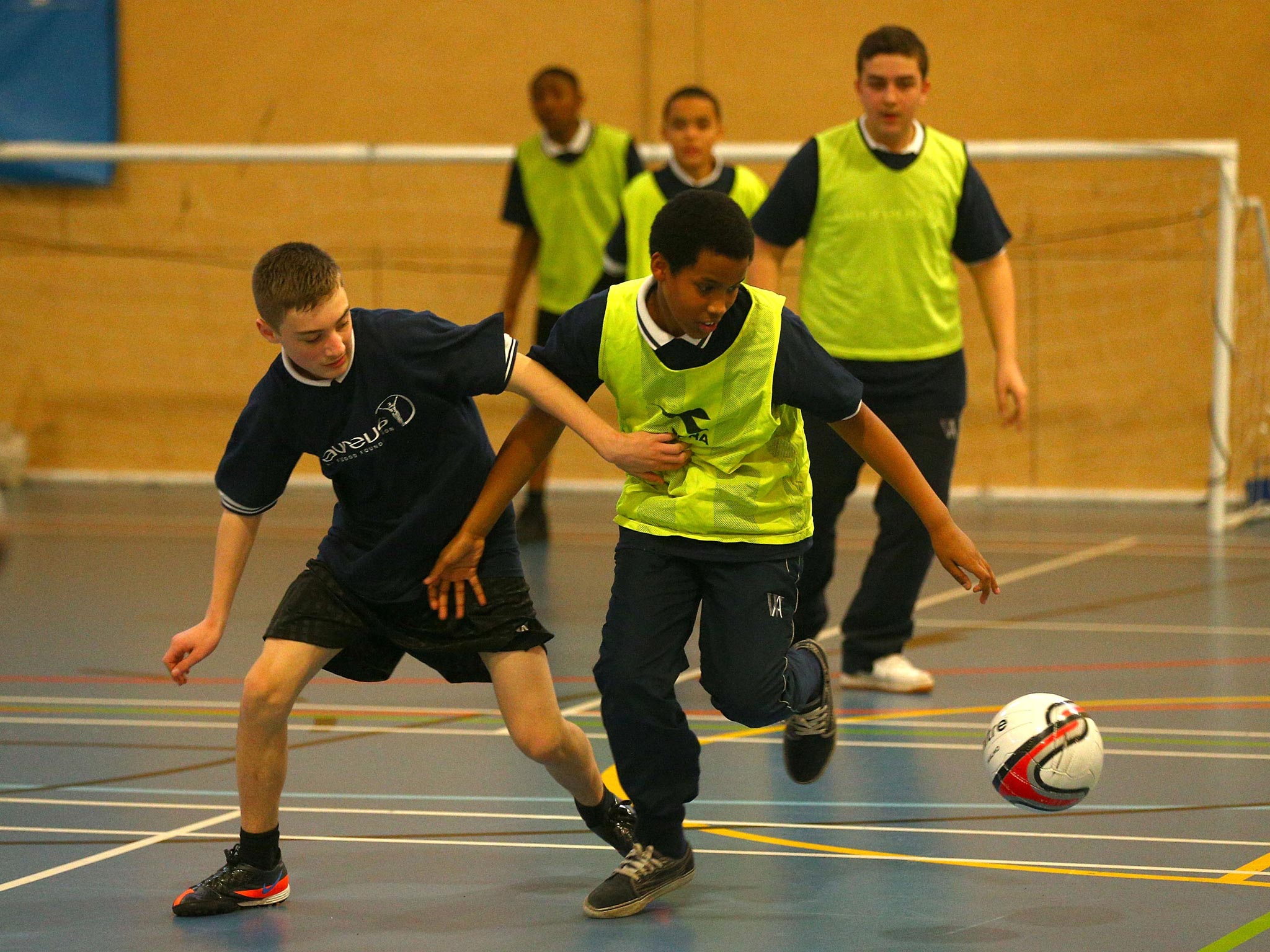Private clubs should not be expected to plug the gaps in basic state provision
Football editor Glenn Moore says Premier League clubs should not have to fund school sports programmes - that is the responsibility of the government

A PR stunt, or a genuine commitment to youth? The schools and pupils who will benefit from the Premier League’s £10.5m investment will not care why the nation’s richest sports clubs are funding them, they are simply grateful for the cash.
The money may not seem very much in the context of the Premier League – Fulham spent that sum alone on Kostas Mitroglou in a failed attempt to stay within the Premier League last season, and have dipped into their £23m parachute payment to do so again on Ross McCormack in an effort to return.
There is, though, no obligation on what is a collection of private companies to plug the gaps left by the Government’s underfunding of school sport. The Premier League pays £1.3bn a year in tax to the Treasury – school sport could, maybe should, be funded from that.
Instead, UK Sport focuses on medal-hunting, ploughing millions over the four-year Olympic cycle into sports such as rowing (£32m), sailing (£25m), canoeing (£20m) and equestrianism (£17m), which have limited popular participation, and into even more esoteric winter sports such as skeleton (£6.5m), curling (£5.4m) and bobsleigh (£5.4m). The urban sport of basketball, meanwhile, receives nothing.
This is done on the basis that success promotes participation. But it does not. Since the 2012 Olympics, when British athletes enjoyed a glut of medals, participation rates have fallen even when measured with Sport England’s creative methods (anyone using a bike or treadmill at the gym is deemed to be participating in athletics and cycling).
Good facilities and coaching promote participation and the Premier League should be applauded for providing the latter – not least because their coaches focus on a wide range of sports, not just football.
With less than a quarter of 13-year-olds doing the recommended daily minimum one hour of physical activity, and diseases caused by sedentary living and poor diet costing the NHS more than £6bn a year, the need to encourage schoolchildren to play sport, and develop a habit that will remain into adulthood, has never been greater. We should not have to rely on sports bodies to bail out the state.
Join our commenting forum
Join thought-provoking conversations, follow other Independent readers and see their replies
Comments